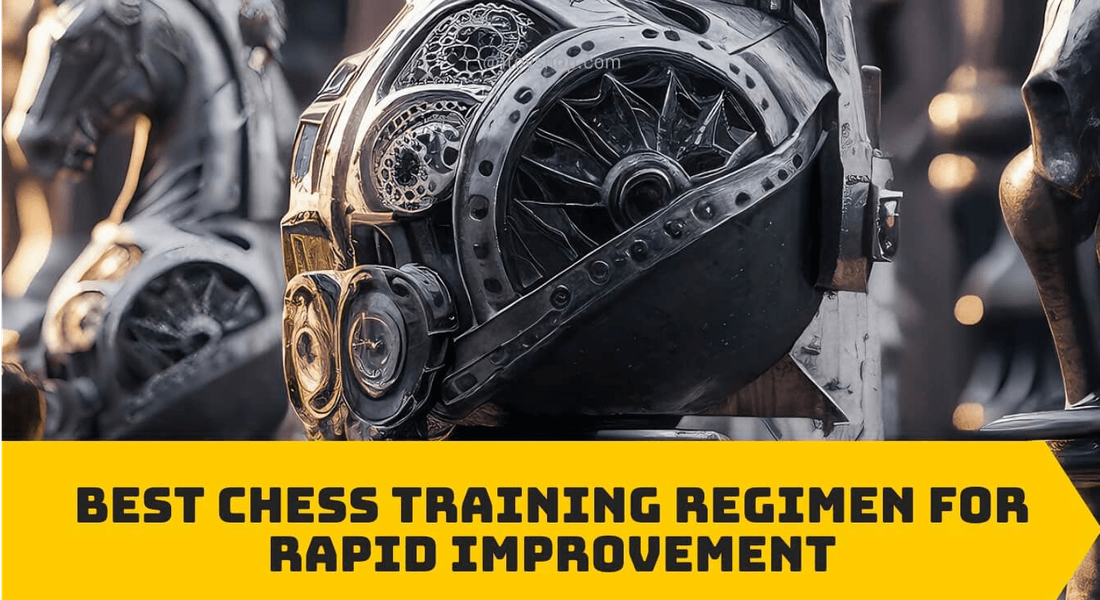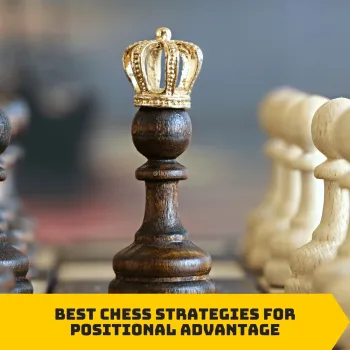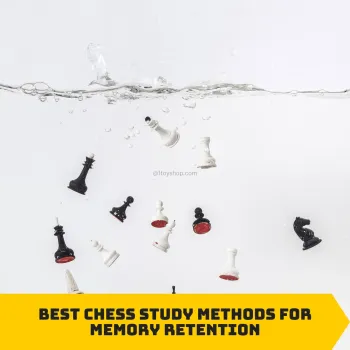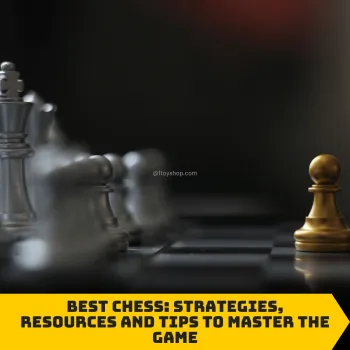
To Get More Wonderful Toys And Take Discount Today. Click On The Image.
Chess, the ancient game of strategy and skill, has captivated minds for centuries. Whether you're a beginner looking to improve or an experienced player aiming to elevate your game, a well-structured training regimen is essential for rapid progress. This comprehensive guide will explore the most effective methods to enhance your chess skills, providing a roadmap for players of all levels to achieve significant improvement in their gameplay.
Understanding the Fundamentals
Mastering Basic Tactics
The foundation of any strong chess player lies in their grasp of fundamental tactics. These include:
Fork: Attacking two pieces simultaneously
Pin: Immobilizing a piece to protect a more valuable one behind it
Skewer: Forcing a valuable piece to move, exposing a less valuable one
Discovery: Moving one piece to unveil an attack from another
Dedicating time to tactical puzzles and exercises can significantly sharpen your ability to recognize and execute these crucial maneuvers during gameplay.
Studying Opening Principles
While memorizing specific opening lines can be beneficial, understanding the underlying principles is far more valuable. Key opening principles include:
Control the center
Develop pieces efficiently
Ensure king safety
Create a harmonious pawn structure
Focusing on these principles rather than rote memorization will provide a solid foundation for the early game across various positions.
Analyzing Master Games
One of the most effective ways to improve your chess skills is by studying games played by grandmasters. This practice offers invaluable insights into advanced strategies, clever tactics, and nuanced positional play.
Annotation and Commentary
When analyzing master games, pay close attention to annotated versions or those with expert commentary. These resources provide explanations for moves that might not be immediately apparent, helping you understand the deeper strategic considerations at play.
Replication and Analysis
After studying a master game, try to replicate it on your own board. Pause at critical moments and consider what move you would make in that position. Compare your choices with those of the grandmaster, analyzing the differences and understanding the rationale behind their decisions.
Implementing a Structured Study Plan
Daily Tactical Training
Incorporate daily tactical puzzles into your routine. Websites and apps offer a wealth of puzzles tailored to various skill levels. Aim to solve at least 10-15 puzzles each day, gradually increasing the difficulty as your skills improve.
Regular Endgame Practice
The endgame is a critical phase where many games are won or lost. Dedicate time to studying common endgame positions and principles. Focus on:
King and pawn endgames
Rook endgames
Minor piece endgames (bishop and knight)
Understanding these fundamental endgame scenarios will significantly enhance your overall chess proficiency.
Systematic Opening Study
While avoiding excessive memorization, it's important to have a repertoire of openings you're comfortable with. Choose 2-3 openings for both white and black, and study them in depth. Focus on:
Key ideas and plans in each opening
Common pawn structures
Typical middlegame positions that arise
This approach will provide you with a solid starting point in your games while allowing for flexibility and adaptation.
Practical Application Through Play
Online Chess Platforms
Utilize online chess platforms to play against opponents of varying skill levels. These platforms often provide analysis tools that can help you review your games and identify areas for improvement.
Tournament Participation
Regularly participating in chess tournaments, whether online or in-person, provides invaluable experience. The pressure of competitive play helps sharpen your skills and exposes you to a wide variety of playing styles and strategies.
Post-Game Analysis
After each game, take the time to thoroughly analyze your performance. Pay particular attention to:
Critical decision points
Missed tactical opportunities
Positional misjudgments
Use chess engines as a tool to support your analysis, but always strive to understand the reasoning behind suggested moves rather than blindly accepting them.
Developing a Chess Mindset
Cultivating Patience and Concentration
Chess demands intense focus and the ability to think several moves ahead. Practice mindfulness techniques to improve your concentration during long games. Develop the patience to carefully evaluate positions before making decisions.
Embracing a Growth Mindset
View each game, win or lose, as a learning opportunity. Maintain a positive attitude towards improvement, understanding that progress in chess is often gradual but cumulative.
Learning from Defeat
Some of the most valuable lessons in chess come from losses. Analyze your defeats objectively, identifying the errors that led to your downfall. Use these insights to strengthen your future play.
Conclusion
Improving at chess requires a multifaceted approach combining study, practice, and the right mindset. By implementing this comprehensive training regimen, you'll be well-equipped to make rapid strides in your chess journey. Remember, consistency is key – regular, focused practice will yield significant results over time. Whether your goal is to compete at a higher level or simply to enjoy deeper, more satisfying games, this structured approach to chess improvement will serve you well. Embrace the challenge, enjoy the process, and watch as your chess skills soar to new heights.
Source: Team 1ToyShop (1.T.S) compiled, analyzed and wrote.

Best Chess Strategies For Positional Advantage
Author name
24.07.2024
Mastering the Art of Positional Chess: Strategies for Long-Term Advantage

Best Chess Study Methods For Memory Retention
Author name
23.07.2024
Mastering Chess: Effective Study Methods for Long-Term Memory Retention

Best Chess: Strategies, Resources And Tips To Master The Game
Author name
23.07.2024
Mastering Chess: Strategies, Resources, and Tips for Success
